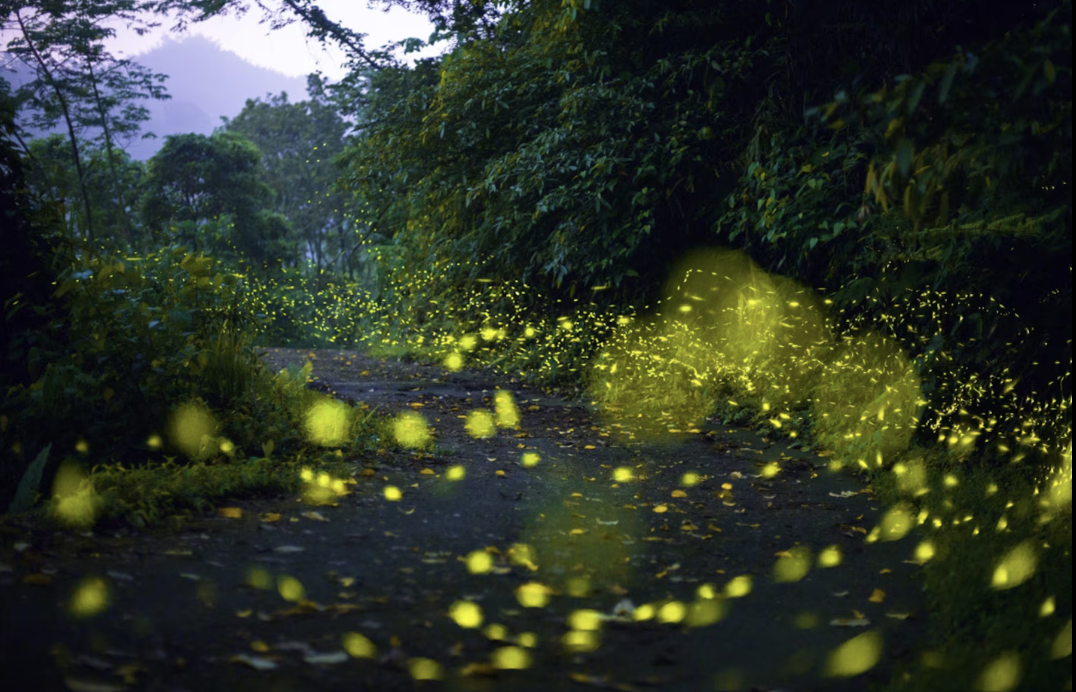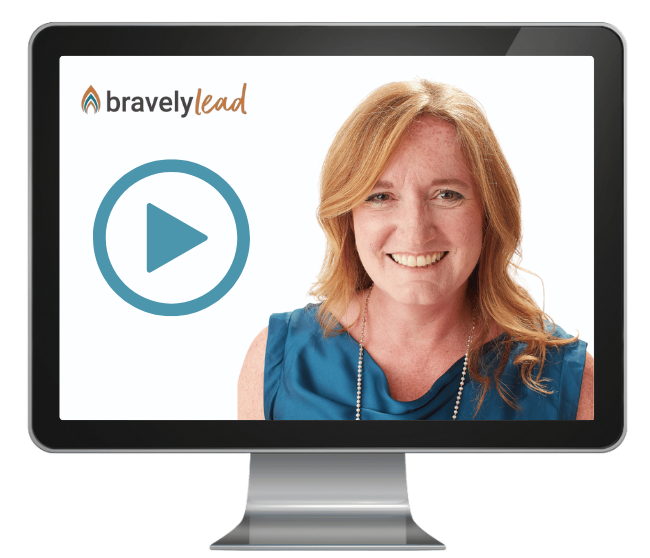Lessons for these times from the fireflies

Photo source: National Geographic
It is the height of a broiling, baking summer in the northern hemisphere, and streets are melting, wildfires are sparking and hurricanes are threatening.
It is also a time of lighter, longer days where the heat gets into your body and your mind, slowing everything down, inviting leisure, relaxation and reflection.
Both things can be true at the same time.
Summer seems to be the time I think the most. Pondering big ideas and questions as my brain rests in the heat, sitting in the breeze on the back deck. So I've been thinking about:
- The state of the world right now. A time of tumult, change, heightened conflict, reactivity and hardship. A time of chaos. Maybe even a time where there is no return. Wars, famine, racism, homelessness, disease, the glorification of celebrities and billionaires who are busy serving their own desires, letting the world burn. David Suzuki, a Canadian icon and legend, recently said “We have failed to shift the narrative and we are still caught up in the same legal, economic and political systems,” said David Suzuki in an exclusive interview with iPolitics. “For me, what we’ve got to do now is hunker down.” You should read the article. He speaks plainly and seriously about the tipping point the world is in, where we are now at this changed place with no roadmap, yet our structures, politics and systems of decision-making are still operating as if it was decades ago. Suzuki also says, " The units of survival are going to be local communities. Governments will not be able to respond on the scale or speed that is needed for these emergencies." The outlook is scary, dire and some days fills me with despair. I've also been thinking about:
- Small acts that can change the world. I live on an island, which requires a level of resilience, connection, and an ability to ask for and receive help in ways that haven't been required in other places I have lived. This place also connects me directly to nature and the environment. Over the last few years, I've been re-wilding the property, planting hundreds of native plants, trees and bushes each spring, watching the increase in butterflies, bees, birds and creatures that gather.
Which brings me to the fireflies.
The first year we lived here I didn't know there should have been fireflies, and I didn't see any. It turns out approximately 14% of fireflies in North America are extinct, and many more are endangered and at risk. The Xerces Society for Invertebrate Conservation has been doing research, including citizen science on fireflies, pollinators and other insects that sustain our lives, providing tips, tools and actions anyone can take to make a difference and change the decline. Without insects, humans won't survive, so these little things really matter.
This year, we have a light show of thousands of fireflies for hours every night. They blink on and off across our property in the meadows, re-wilded areas and the piles of sticks and twigs that provide habitat. This light show is one of my favourite things about the hot, humid summer. While I've been moving more slowly and reflecting on life, the fireflies have sparked some insights.
Lesson #1: Find your own antidote to the despair of these times.
Fireflies fill me with wonder and awe, making me think of magic, fairies and alchemy. That feeling of wonder is an antidote to the despair, righteousness and undirected anger I sometimes feel these days. It reminds me there are so many good and beautiful things in this world, and so many of them are right here in front of me.
What fills you with wonder, re-awakening possibility and magic? How can you make space for more of that in your life?
Lesson #2: Slow down enough to see the good.
It has taken 5 years to go from no fireflies on my land to an abundance of light show every night, but I only noticed how many were gathering in the dusk when walking the dog for her bedtime business. Appreciating the soft, humid air on my skin, I suddenly saw lights in the trees and actually thought the coyotes were out, until I realized the fireflies had come. It took time for their populations to grow, but I had to be going slow enough to see them and appreciate them. In these times of chaos, resisting the busyness and urgency lets me be thoughtful, open and present, and all good decisions and actions have come out of being in that state.
When do you catch yourself reacting, rushing, feeling pressured? How can you slow down your body and your mind, settling into stillness to find the answers and be open to the possibilities that are there if you can see and hear them?
Lesson #3: It is through small acts we make a difference, even in the most challenging of times.
I didn't set out with a specific goal to create firefly habitat. I set out with a goal to re-wild my property with native plants and trees, learning about hugelkultur, organic gardening, the needs of native wildlife and insects, and the local ecology. I wanted to intimately know this piece of land in this part of the world. It turns out the countless small acts we've made over the last few years have had an impact.
I am heartened and hopeful that my anecdotal experience and belief that small acts make a big difference is born out my recent research. Erica Chenoweth’s research on nonviolent movements found that once just 3.5% of a population engages in sustained, visible action, change becomes not just possible… but inevitable. That figure rewrites the rules of influence. Small acts are what change the world.
Ask yourself - what small acts and contributions can I make that make a difference for one person, one group, one organization? How do I want to be in these times of chaos and disruption? How will I meet this moment? What impact do I want to have? What am I committed to? The answers to these questions give me agency, focus and purpose, and enable me to make positive change in challenging times. Slow down and ask yourself these questions too.
Lesson #4: All I can impact are the things within my influence and control.
I have no control over whether or not fireflies come to this land, but I have influence over the conditions that invite them to thrive. In the same way, I can't stop the war between Ukraine and Russia, but I can vote, contribute to elected officials and parties with policies that align with my values, raise my voice and speak out about what I believe in, work together with others to build skills and capacity to transform conflict in their organizations and communities. That is within my control and influence. Choosing to do nothing gives the chaos license to thrive, so I want to choose actions that are within my sphere of influence.
What change do you want to be part of? How can you influence that change at a local, community based level? How can you have a positive impact on one person or a small group?
Lesson #5: It is always better together.
I love the wonder and magic of fireflies in my little part of the world. Imagine if all my neighbours were seeing a resurgence of fireflies too! Imagine if everyone on this small island was making choices to nurture nature and wildlife and create the conditions for fireflies (and so many other things) to thrive!
My small acts can make a small difference, but many small acts can change the world. Heather Cox Richardson, an American historian, comments on politics and democracy, highlighting the fear, tumult and chaos of these times, she also notes that "we live in a time of extraordinary possibility", and we get to make the world a better place, together.
What choices will you make towards a more positive future? Who will you invite and involve?




